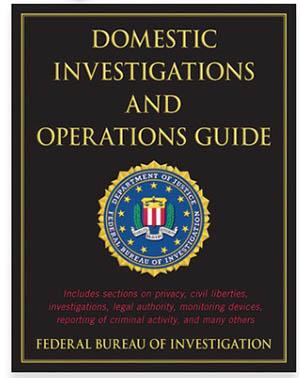Use of Informants or “Spies” in Criminal Investigations

Headlines and tweets coming out of Washington have put a spotlight on law enforcement’s use of informants, now known in federal parlance as “confidential human sources” or CHS. Putting aside the political theater and self-serving spin of the “criminal deep state” and the planting of spies, how are informants used in every day investigations?
Using human sources (informants) to collect information is common throughout municipal, state and federal investigations. Informants are either individuals who have been charged with their own crimes and have agreed to cooperate in the hopes for reduced charges or sentence based upon that cooperation, or are people who are paid for their information and access to criminal groups or activities. The use of confidential human sources is expressly encouraged by the guidelines that cover the FBI’s behavior. The Guidelines for Domestic FBI Operations, a manual issued under former Attorney General Michael Mukasey in 2008, states that “the identification and recruitment of human sources—who may be able to provide or obtain information relating to criminal activities, information relating to terrorism, espionage, or other threats to the national security, or information relating to matters of foreign intelligence interest—is critical to the effectiveness of the FBI’s law-enforcement, national-security, and intelligence programs, and activities undertaken for this purpose are authorized and encouraged.”
Informants serve a valuable law enforcement function as they have access to certain groups and activities that traditional law enforcement and undercover agents may not. When their use is carefully monitored and regulated, the information can lead to valuable intelligence information, search warrants and arrests. A simple example comes from the field of drug investigations. The local police arrest a person for possession of controlled substances. The police tell the arrestee that he can help himself by “giving up” his supplier – dealer. The arrestee is then sent to the dealer to make a “controlled buy.” The police search the arrestee/informant and his car before he drives to the dealer’s apartment. They provide him with the money to purchase the drugs and watch him drive to the apartment. He goes inside, makes the transaction and then is followed back to a prearranged meeting spot afterward. The informant gives the police the drugs he just bought and the police once again search the informant and his car to make sure there is no other contraband. The informant’s controlled purchase is then used as part of the probable cause to obtain a search warrant for the dealer’s apartment.
Like any law enforcement tool, however, the use of informants can be abused and misused. Informants may have an agenda of their own, they may mislead law enforcement or set-up innocent individuals. There are countless examples of the misuse of informants by corrupt officers, or ones that simply take short cuts and do not thoroughly vet the informant or carefully monitor their activities.
Robert Stahl, and his firm, Stahl Gasiorowski Criminal Defense Lawyers aggressively defend individuals charged with complex federal and state crimes. Founder Robert G. Stahl is recognized as one of the top criminal defense attorneys in the NY/NJ area for his skills, knowledge and success. To contact the firm, call 908.301.9001 for the NJ office and 212.755.3300 for the NYC office, or email Mr. Stahl at rgs@sgdefenselaw.com.















